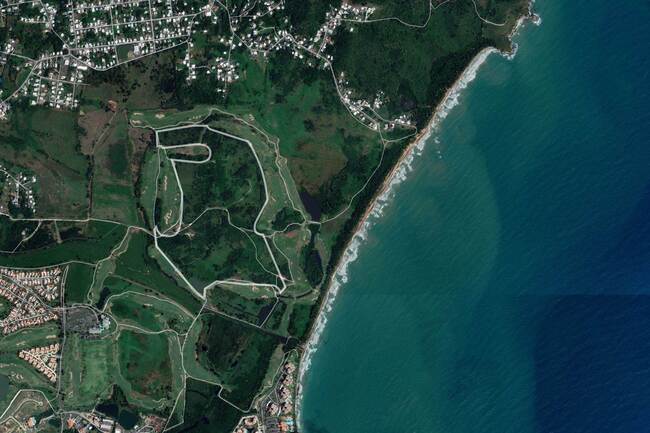A threat to the Puerto Rican environment and people’s well-being
Image by Perry & Co. – Sotheby’s International Realty
The management and use of land in Puerto Rico has been a topic of debate for many years. In a country with abundant natural assets, great tourism potential and tax exemptions for foreigners, the misuse and exploitation of land has become one of the main environmental threats to the Puerto Rican archipelago.
In 2015, the Planning Board (JP) approved the Land Use Plan for Puerto Rico which, according to the. Quick Guide to Puerto Rico’s Land Use PlanThe purpose of the Act is to “establish public policy on land management that will maximize the potential of Puerto Rico’s land within a framework that guarantees the protection of natural resources and sustainable development.
But did you know that there is another document that dictates how land is used in Puerto Rico? This is called the Joint Regulation (CR).
Also a product of the JP, the Joint Regulation regulates the use of land and the granting of permits that affect the planning and use of land in the country. In 2010, the first CR was approved and put into effect. Then in 2015 amendments were made to it, but it was declared null and void by the Supreme Court of Puerto Rico. Two more versions of the CR were drafted, in 2019 and 2020, both also declared null and void by the Supreme Court.
This year, the JP submitted a draft for a new Joint Regulation (RC-2022), but it has major changes that would alter Puerto Rico’s zoning and the way land use permits are issued. This edition of the Regulation would allow the State to have greater power over municipalities (including autonomous ones) and communities.
Radical changes for all of Puerto Rico
The 983-page document includes 7,736 amendments or 4,143 changes. According to Hey! BoricuaThe most threatening changes proposed by the RC-2022 are:

-Changes in the current qualification of municipalities without following the due process of law previously established by the JP; and changes in the municipal codes and the Uniform Administrative Procedure Act (Act 38-2017).
-The change of all existing grading districts in Puerto Rico to new ones, which would allow more uses than those already allowed by the 2015 Land Use Plan.
-Alteration of existing planning without carrying out a planning and participation process required by law.
Imminent consequences
Should RC-2022 be approved, the changes will undoubtedly be effective immediately. Construction of new structures, environmental degradation and displacement of communities will be rampant.
According to ¡Ey! Boricua, the new regulation will allow protected agricultural areas, for example, to be converted into farms for solar panels. The construction of housing developments, shopping malls, hotels and others on the land surrounding El Yunque, the only tropical forest designated by the U.S. Federal Forest Service. It would also allow coastal constructions that are currently illegal, such as those currently under investigation in Salinas.
In addition, RC-2022 will make it easier for any low population intensity gated development to allow the construction of hotels or short-term rental apartments (Airbnb), churches and other infrastructure without community notice or context assessments and impact analysis.
The regulation would affect 78% of Puerto Rico’s population living in low-density housing developments, according to ¡Ey! Boricua.
This regulation will undoubtedly lead to an increase in the rate of local displacement, as well as uncontrolled urbanization on an island that is suffering more and more from the degradation of its natural resources and the effects of climate change.
Who would benefit from this regulation?
In Puerto Rico, it is not uncommon for the country’s “progress” to be at the expense of the well-being of the people and the environment.
RC-2022 is no exception to this, as those who will benefit from this regulation will be those individuals and entities seeking to profit from the combination of low costs, low controls and a “paradise”.
Some of the groups that will benefit from this new regulation are builders and contractors; entrepreneurs; beneficiaries of Law 22; large companies wishing to expand; and others.
The 2022 Joint Regulation is one of many ways in which the State prioritizes the misnamed “development” before giving the environment and the population, vital elements for true progress, the importance and value they deserve.
The deadline to submit comments to the Planning Board is January 20, 2023. These will be considered official comments and can be submitted through the JP email address: comentariosjp@jp.pr.gov. Remember to indicate that the comments are regarding the draft of the Joint 2022 regulations.


Leave a Reply